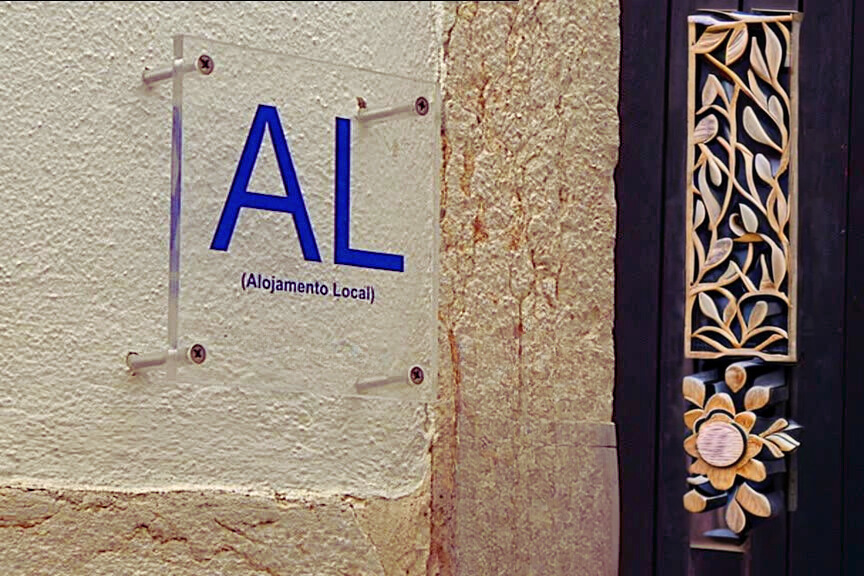In recent news, Portugal's short-term rental market is undergoing significant changes with the introduction of new legislation known as Mais Habitação. This legislation grants more authority to local municipalities and condominiums, impacting property owners and the tourism sector.

Key Legislation Highlights: Tax Exemption
Property owners who withdraw their homes from short-term rentals (Alojamento Local or AL) by the end of 2024 and transition them into long-term residential rentals will be eligible for an exemption from Income Tax (IRS) or Corporate Income Tax (IRC) on rental income until the end of 2029.
To qualify for the IRS or IRC exemption on rental income, owners of AL properties must meet the following criteria:
Potential Impact on the Tourism Sector: Key Findings from a Study by Nova SBE
Impact on Property Owners
The study also reveals insights into property owners' responses to the Mais Habitação legislation:
In summary, the Mais Habitação legislation is poised to bring about significant changes in Portugal's AL sector. While addressing certain concerns related to property usage, it also underscores the sector's critical role in the country's tourism industry, its substantial economic contribution, and the need to strike a balance between regulatory measures and sustainable growth in the sector.
Key Legislation Highlights: Tax Exemption
Property owners who withdraw their homes from short-term rentals (Alojamento Local or AL) by the end of 2024 and transition them into long-term residential rentals will be eligible for an exemption from Income Tax (IRS) or Corporate Income Tax (IRC) on rental income until the end of 2029.
To qualify for the IRS or IRC exemption on rental income, owners of AL properties must meet the following criteria:
- The AL establishment's registration date must precede December 31, 2022.
- The lease agreement for long-term residential rental must be concluded by December 31, 2024.
Potential Impact on the Tourism Sector: Key Findings from a Study by Nova SBE
- Hotel Shortage: According to a study conducted by the Association of Local Accommodation (ALEP) in partnership with Nova SBE, accommodating all tourists currently staying in short-term rentals (Alojamento Local or AL) would require the construction of 1,030 additional hotels across Portugal. Specifically, Lisbon would need 211 new hotels, and Porto would require 168, almost matching the Algarve's 169.
- Essential Sector: The study emphasizes that the removal of AL properties would necessitate an increase in traditional hotel capacity by over 50%. This highlights the vital role of AL in accommodating tourists and sustaining Portugal's tourism sector.
- Bed Shortage: Economist Pedro Brinca underscores the scarcity of available beds, mentioning that in 2019, Portugal had 1,923 hotels in operation (110 in Porto, 224 in Lisbon, and 409 in the Algarve). Maintaining the same ratio of overnight stays per hotel, the disappearance of AL would require the creation of 1,030 new hotel units to accommodate tourists.
- Economic Contribution: In 2019, the AL sector was responsible for 306,096 direct and indirect jobs, equivalent to 6.18% of the national total. This means that each AL property generates nearly four jobs. Additionally, AL contributed €9.9 billion to Portugal's Gross Domestic Product (GDP), accounting for 4.64% of the national GDP.
Impact on Property Owners
The study also reveals insights into property owners' responses to the Mais Habitação legislation:
- Diverse Locations: AL properties are widespread, with 74% of new AL licenses granted outside of Lisbon and Porto, highlighting their importance in various regions.
- Owner Profile: The AL sector is characterized as highly fragmented, with the majority of property owners having between one to three units. For 46% of them, AL generates monthly incomes below €1,000.
- Adaptation Strategies: In response to the new regulations, a considerable number of property owners plan to reduce new investments. However, the majority do not intend to switch their properties to long-term rentals, with only 13% considering this option.
- Alternative Solutions: Instead, 57% of AL property owners are considering medium to long-term rentals to foreign nationals, while around half will utilize their properties as second homes.
In summary, the Mais Habitação legislation is poised to bring about significant changes in Portugal's AL sector. While addressing certain concerns related to property usage, it also underscores the sector's critical role in the country's tourism industry, its substantial economic contribution, and the need to strike a balance between regulatory measures and sustainable growth in the sector.
Promote your business in the domestic and international market
UrbaMarkt is an international marketing portal dedicated to bringing national and international buyers together with local professionals, increasing the possibilities of exposing their products and experiences to customers anywhere in the world.|
Marisol Ferreira
|